10 Best Herbal Tinctures For Lice
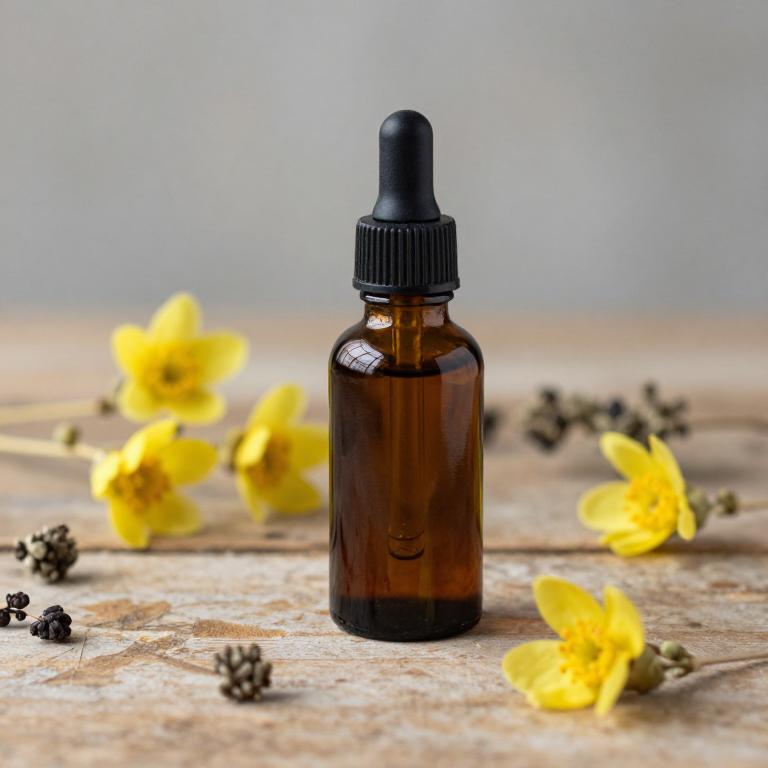
Herbal tinctures for lice are concentrated liquid extracts made from various plant-based ingredients known for their natural insecticidal properties.
Commonly used herbs include lavender, neem, tea tree oil, and pennyroyal, which are believed to repel or kill lice due to their potent aromatic compounds. These tinctures are often preferred as a safer alternative to chemical-based lice treatments, especially for children and individuals with sensitive skin. To use them effectively, the tincture is typically applied to the hair and scalp, left to sit for a recommended period, and then rinsed away.
While herbal tinctures may not eliminate all lice at once, they can be part of a comprehensive treatment plan when combined with combing and other natural remedies.
Table of Contents
- 1. Melaleuca (Melaleuca alternifolia)
- 2. Lemon grass (Cymbopogon citratus)
- 3. Wormwood (Artemisia absinthium)
- 4. White cedar (Thuja occidentalis)
- 5. Polium germander (Teucrium polium)
- 6. Eucalyptus (Eucalyptus globulus)
- 7. English lavender (Lavandula angustifolia)
- 8. Peppermint (Mentha piperita)
- 9. Anise (Pimpinella anisum)
- 10. Ceylon cinnamon (Cinnamomum verum)
1. Melaleuca (Melaleuca alternifolia)

Melaleuca alternifolia, commonly known as tea tree oil, is a popular natural ingredient used in herbal tinctures for treating lice due to its potent antimicrobial and antiparasitic properties.
These tinctures are often formulated with a base of alcohol or glycerin to enhance the absorption and effectiveness of the active compounds. The essential oil of melaleuca alternifolia works by disrupting the exoskeleton of lice, leading to their dehydration and eventual death. While these tinctures are generally considered safe for topical use, they should be diluted properly to avoid skin irritation.
Many users find them to be a gentle and effective alternative to chemical-based lice treatments, especially for those seeking natural remedies.
2. Lemon grass (Cymbopogon citratus)
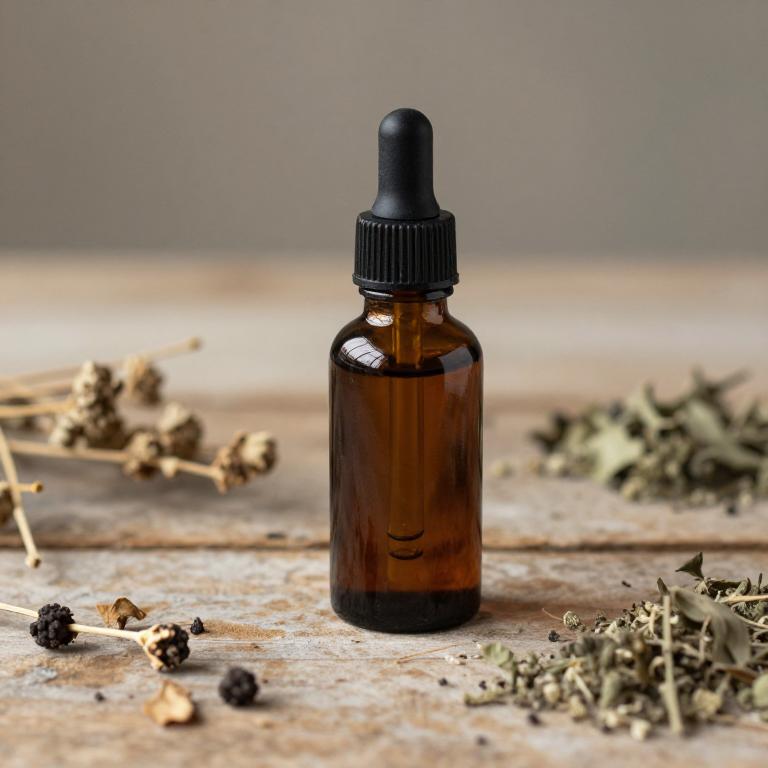
Cymbopogon citratus, commonly known as lemon grass, is a herbal plant that has been traditionally used for its aromatic and therapeutic properties.
Lemon grass tinctures are often utilized in natural remedies for treating lice due to their potent essential oils, which possess insecticidal properties. The active compounds in lemon grass, such as citral and myrcene, are believed to disrupt the life cycle of lice by repelling and eliminating them from the scalp. When applied topically, these tinctures can provide a safe and effective alternative to chemical-based lice treatments.
However, it is important to consult with a healthcare professional before using lemon grass tinctures, especially for children or individuals with sensitive skin.
3. Wormwood (Artemisia absinthium)
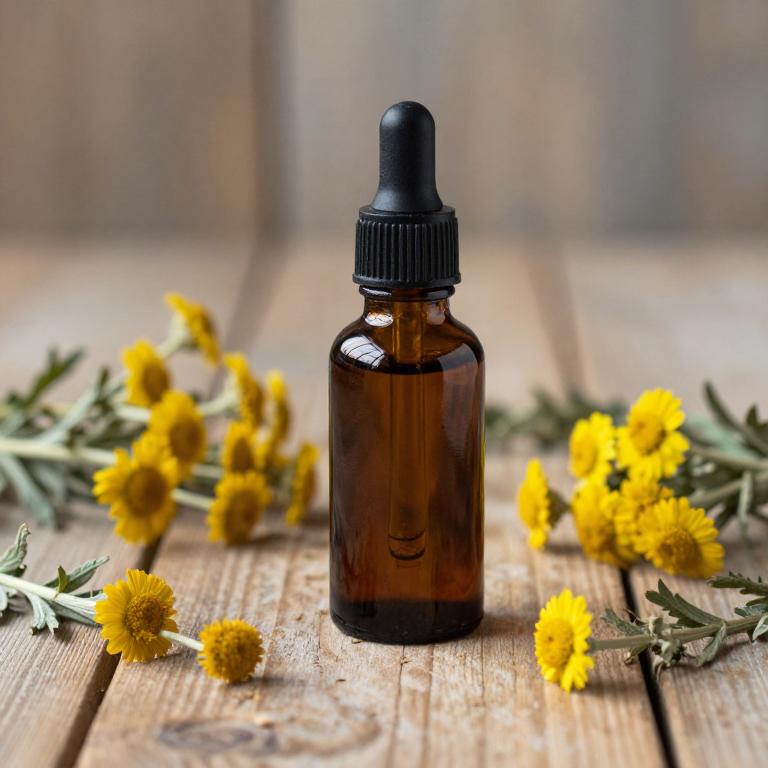
Artemisia absinthium, commonly known as wormwood, has been traditionally used in herbal medicine for its potential insecticidal properties.
When prepared as a tincture, it may help in the treatment of lice by disrupting the life cycle of the parasites. The active compounds in artemisia, such as thujone and other volatile oils, are believed to repel and kill lice upon application. However, due to its potency, it should be used with caution and diluted properly to avoid skin irritation.
While some anecdotal evidence supports its use, more scientific research is needed to confirm its effectiveness and safety for lice treatment.
4. White cedar (Thuja occidentalis)
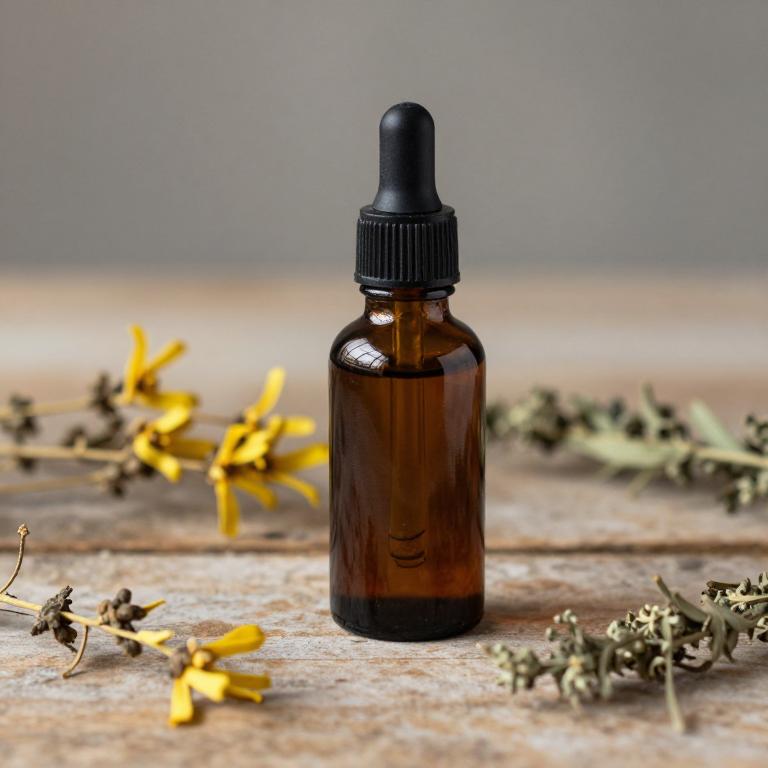
Thuja occidentalis, commonly known as white cedar, is a traditional herbal remedy that has been used for centuries to treat various ailments, including lice.
Its tinctures are prepared by extracting the active compounds from the leaves and twigs of the plant using alcohol, making them potent and easy to administer. The essential oils in thuja, such as alpha-pinene and beta-pinene, are believed to have antiparasitic properties that can help eliminate lice from the scalp. When applied topically, thuja tinctures may disrupt the life cycle of lice by interfering with their nervous system and inhibiting their ability to attach to hair follicles.
However, due to its potent nature, it is important to use thuja tinctures with caution and consult a healthcare professional before use, especially for children or individuals with sensitive skin.
5. Polium germander (Teucrium polium)
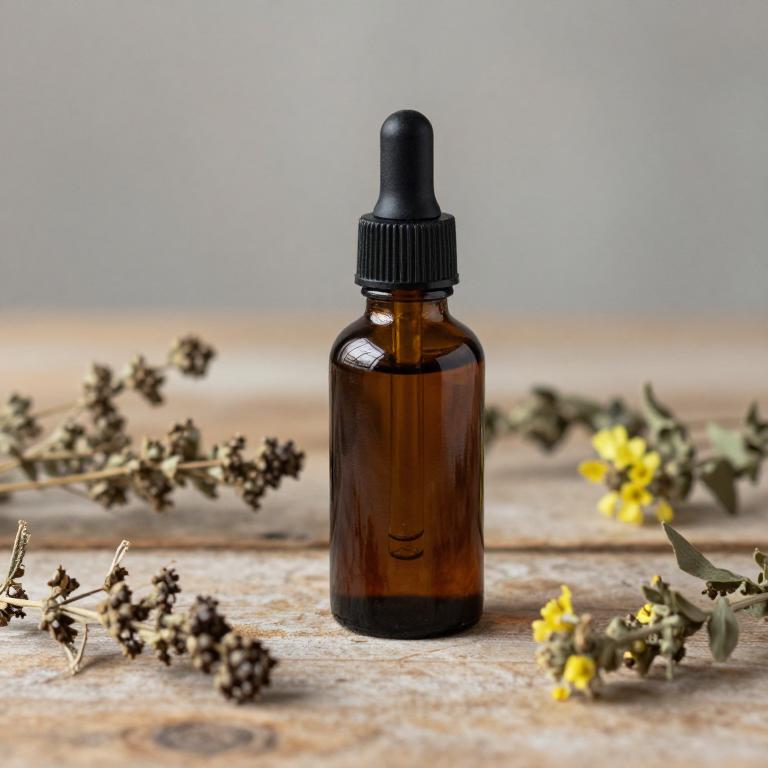
Teucrium polium, commonly known as germander, has been traditionally used in herbal medicine for its potential antiparasitic properties, including its effectiveness against lice.
Herbal tinctures made from Teucrium polium are prepared by soaking the dried plant in alcohol, allowing the active compounds to be extracted for use. These tinctures may help to weaken the lice's exoskeleton and disrupt their life cycle, making them a natural alternative to chemical treatments. While some studies suggest its efficacy, more clinical research is needed to confirm its reliability and safety.
As with any herbal remedy, it is advisable to consult a healthcare professional before use, especially for children or individuals with sensitive skin.
6. Eucalyptus (Eucalyptus globulus)
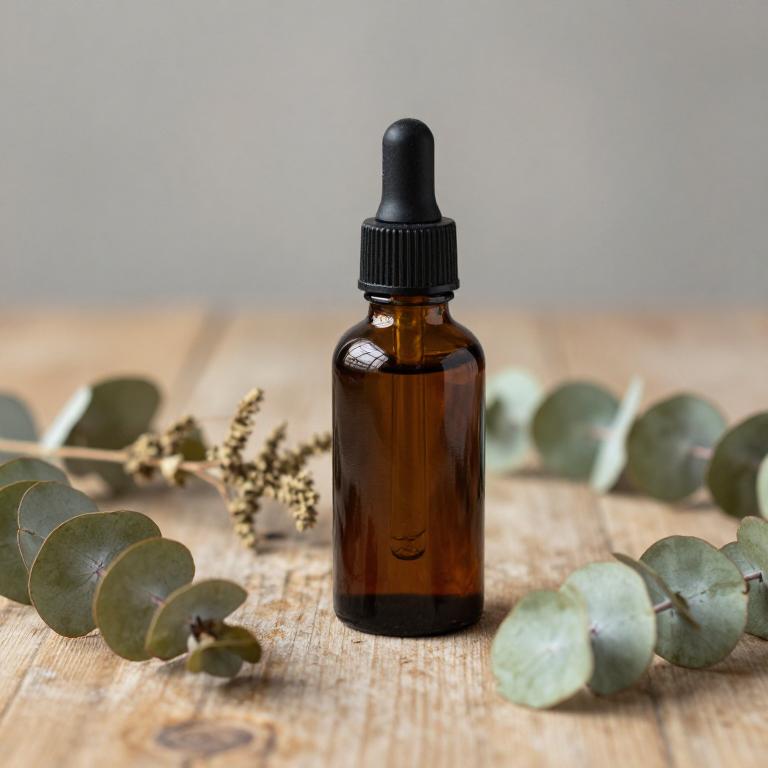
Eucalyptus globulus, commonly known as eucalyptus oil, is often used in herbal tinctures for its potent antiparasitic properties.
These tinctures are traditionally applied to the scalp to help combat lice infestations due to their ability to disrupt the lice's exoskeleton and repel them. While some natural remedies suggest eucalyptus globulus as a potential alternative to chemical treatments, its effectiveness can vary and may not eliminate all lice or nits. It is important to note that eucalyptus globulus tinctures should be used with caution, as they can cause skin irritation or allergic reactions in some individuals.
As a complementary approach, these tinctures may be used alongside other lice treatments under the guidance of a healthcare professional.
7. English lavender (Lavandula angustifolia)
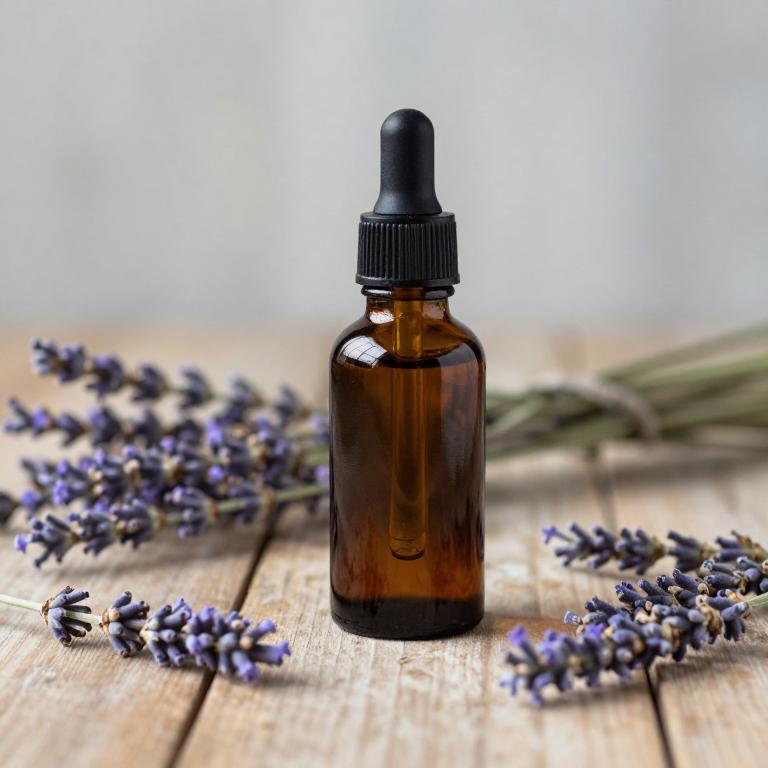
Lavandula angustifolia, commonly known as English lavender, has been traditionally used for its calming and antiseptic properties, and its essential oils are often incorporated into herbal tinctures for lice treatment.
These tinctures typically combine lavender oil with alcohol to create a potent, aromatic solution that can help repel and eliminate lice from the scalp. The soothing scent of lavender not only aids in reducing head lice but also provides a pleasant, relaxing effect on the user. While lavender tinctures may not be a standalone solution for severe infestations, they can be a useful complementary remedy when used alongside other lice treatments.
However, it is important to consult a healthcare professional before using any herbal remedy, especially for children or individuals with sensitive skin.
8. Peppermint (Mentha piperita)

Mentha piperita, commonly known as peppermint, is often used in herbal tinctures for its strong aromatic properties and potential efficacy against lice.
These tinctures are typically made by soaking crushed peppermint leaves in alcohol to extract their active compounds. The menthol in peppermint oil is believed to create an environment that is inhospitable to lice, potentially reducing their ability to cling to hair shafts. While some anecdotal evidence suggests that peppermint tinctures may help repel or kill lice, scientific research on their effectiveness is limited.
As a natural alternative, peppermint tinctures are often preferred by those seeking non-chemical solutions for lice infestations.
9. Anise (Pimpinella anisum)
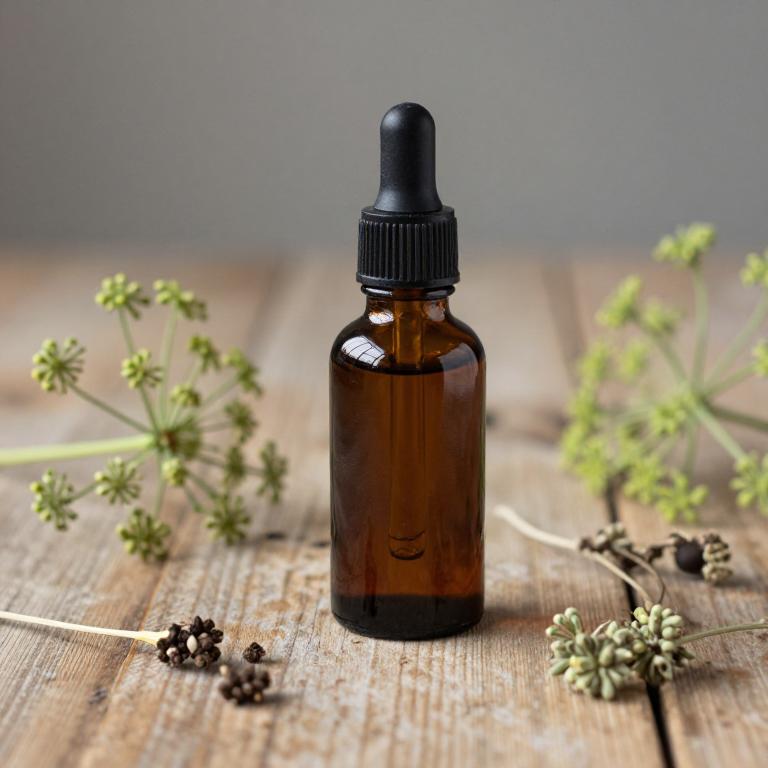
Pimpinella anisum, commonly known as anise, has been traditionally used in herbal medicine for its potential benefits in treating lice.
Herbal tinctures made from anise seeds are believed to contain compounds that may help repel or eliminate head lice due to their aromatic and antiparasitic properties. These tinctures are often used as a natural alternative to chemical treatments, offering a safer option for those seeking non-toxic solutions. The essential oils in anise tinctures, such as anethol, are thought to disrupt the lice's nervous system, making them less effective at clinging to hair.
While more research is needed to confirm their efficacy, many users report positive results when using anise-based tinctures as part of an integrated lice treatment regimen.
10. Ceylon cinnamon (Cinnamomum verum)
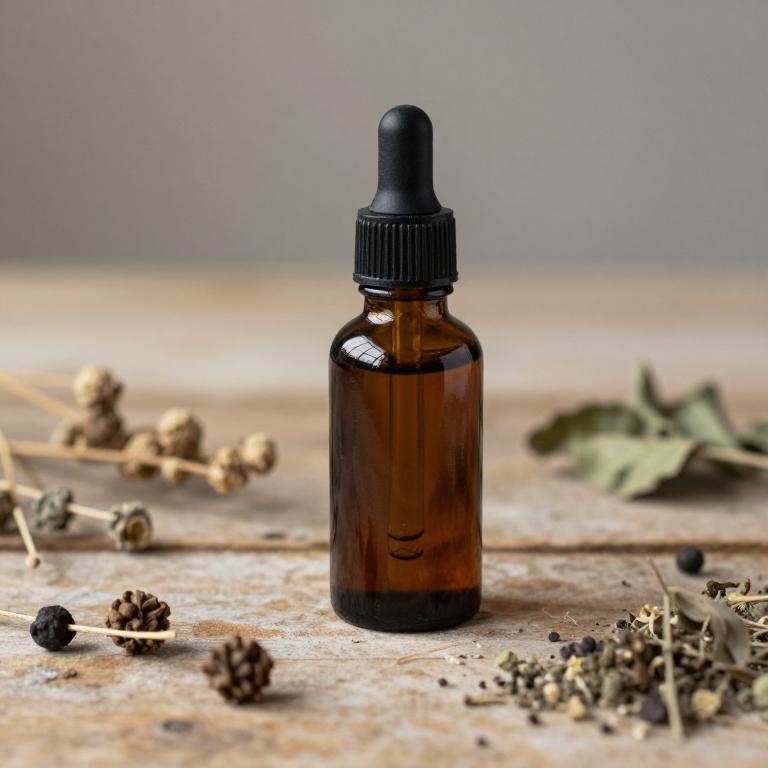
Cinnamomum verum, commonly known as true cinnamon, has been traditionally used in herbal remedies for its antifungal and antimicrobial properties.
When prepared as a tincture, it may help in treating lice by creating an environment that is inhospitable to these pests. The essential oils in cinnamon tinctures can disrupt the exoskeleton of lice, potentially leading to their elimination. However, it is important to note that while some anecdotal evidence supports its use, scientific studies on its efficacy against lice are limited.
As with any herbal treatment, it is advisable to consult a healthcare professional before using cinnamon tinctures for lice infestation.